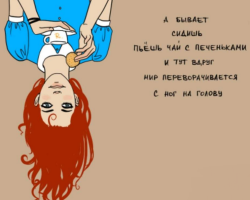The national vaccination calendar will help every mother and every dad find out when you need to vaccinate the child.
Content
- Vaccination calendar for children of Russia 2022-2023: a list of vaccinations
- What do parents need to know about vaccinations and vaccination of children?
- What vaccinations are required for children?
- Vaccination calendar for 2022-2023 in Russia: Table
- Russian vaccination calendar for 2022-2023 Children under 1 year old
- List of vaccinations in Russia for children under 2 years old
- Russian vaccination calendar for 2022-2023 Children under 3 years old
- Kazakhstan vaccination calendar for 2022-2023
- Vaccination calendar for children of Ukraine for 2022-2023
- Is there a new vaccination in the vaccination calendar 2022-2023?
- Video: Vaccount reactions - emergency care - school of Dr. Komarovsky
Children are subject to disease. They poorly tolerate any infections that always occur with complications in the child's body.
Therefore, kids are vaccinated to create a persistent immunity that opposes certain dangerous viruses.
- At the birth of a child, mom should already have an immunization calendar in her hands
- She should deliver the baby to the clinic for vaccination in a timely manner, and the vaccine calendar will help to find out the deadlines, which will be published below
- The schematic table of vaccinations is very convenient to use. It contains columns with the age of the child, the name of vaccination and information about the documents used by medical workers
Vaccination calendar for children of Russia 2022-2023: a list of vaccinations
- Each doctor will confidently say that it is necessary to prevent diseases, because it is better to prevent than to treat
- Treatment takes a lot of money, strength and health
- Even if the virus enters the body of the crumbs, then its protected immunity will perfectly cope with the infection
Important: the vaccination calendar for children of Russia 2022-2023 was approved in the Ministry of the Russian Federation. For the purchase of all the necessary vaccines, funds from the budget are allocated.
Parents need to arrive at the clinic at the place of residence with their baby and conduct immunization. In our country, vaccination is made from such diseases:
- Infectious viral disease - hepatitis B. In Russian clinics, they use the regions in the vaccine in the regions in, n-in-Vax II, Angeriks-V, Eberbiac NV and Sci-B-VAC
- Infection that affects the lungs and other organs - tuberculosis. For vaccination, the bacillus of Calmetta-chain is used. Persistent immunity to the disease is produced
- Diphtheria, pertress, tetanus - In our country, such vaccines are used: D.T. COC and Tetracok, DTP (Russian drug), Belgian agent Treanrick-NV, D.T. VAK, ADS, Imovaks D.T. Adultery, ADSM, AS (T), AD-M (D)
- Hemophilic infection. Vaccinations from this disease are not made by all children, but only to babies from the risk group (you can learn from the table). If, according to the testimony of the pediatrician, it is necessary to vaccinate the child, then the Hiberix Hib verticop is used. Introduced into muscle tissue - babies into the thigh, older children - in the shoulder
- Polio - vaccine “Imovax Polio" - injection drug. Drops are used to vaccinate young children - this is more convenient than an injection
- Measles, rubella, epidemic mumps -In Russia, vaccines are allowed from these diseases of Indian and domestic production: Ruvaks, Ervevaks, Priorix, MMR-II
- Flu - In our country, vaccination is carried out from this disease, including from strain A (H1N1) to everyone. Preparations of the Grippol and the Plant Plus are used
Important: a list of vaccinations can be supplemented by parents at will. Additional types of vaccination include vaccinations against rotavirus infection, meningococcal infection, chickenpox and human papillomavirus.
You should know: these diseases are also dangerous for babies, so additional vaccination is recommended, but on a paid basis in medical centers.
What do parents need to know about vaccinations and vaccination of children?
- Any vaccination from a compulsory list can be delivered for free, additional vaccination is carried out for a fee
- If the child has no contraindications for immunization, then the terms of vaccination must be strictly observed. Contraindications include: elevated temperature, SARS and poor indicators of urine and blood analysis
- The pediatrician must inform parents about the risks associated with vaccination. He will tell you what to do if the temperature rises, for example, after the DTP
- Do or not to vaccinate - such a decision is made only by parents along with the pediatrician
What else do parents need to know about vaccinations and vaccination of children, you can read in this article. Moms and dads should be devoted to such factors: from what they make immunization to their baby, what to expect from her and how to cope with complications.
What vaccinations are required for children?
- If the baby is not vaccinated from childhood, then they can there are difficulties With its design to kindergarten or school
- Even later, when the child will grow up, he will have problems when entering a higher educational institution, if in childhood he is not vaccinated against viral infections
- Often parents refuse immunization, explaining this by the fact that the baby has a weakened organism due to the fact that his teeth are climbing, or they are sure that breastfeeding completely protects against infections
- Such errors sometimes lead to serious consequences. After all, not all mothers who feed the babies themselves are vaccinated from diseases. In addition, their body should be an antibody to be enough for themselves and for the baby
- When it's time to go to kindergarten, parents agree to do immunization. But this is also a lot of stress for the child's body, because in a short period of time, it is necessary to carry out all types of immunization that were missed
Tip: Make vaccination in a timely manner, taking care of the health of your children and saving your nerves.
Memorize a list of mandatory vaccinations to children to know what and when you will be done at the next visit to the pediatrician:
- Tuberculosis - The disease affects internal organs
- Hepatitis B - infection affects the liver
- Polio - infection causes paralysis
- Diphtheria - the virus impresses the respiratory system of the heart, nervous system and adrenal glands
- Whooping cough - The disease of viral etiology. There is a strong cough to exhaustion, redness of the skin and even vomiting
- Tetanus - infection with terrible consequences in the form of convulsions and suffocation
- Measles - The course of the disease violates the functioning of the mucous membrane of the nose and throat system. Timely treatment is required, otherwise severe complications will appear
- Rubella - Dangerous virus. Once in the body, it causes an increase in lymph nodes
- Small - acute disease with damage to the salivary glands and nervous system
Vaccination calendar for 2022-2023 in Russia: Table
Immunization is carried out by introducing artificial biological materials or inactive animal bacteria. Therefore, do not worry that the child will get sick immediately after vaccination.
Important: adhere to the vaccination calendar 2022-2023, so that all the injections are delivered on time, and the baby has a good immunity to infections and viruses.
Table of immunization of a child from birth to 18 years:
| The age of the child (months, years) and the period when the child needs to conduct a profimmunization | The name of vaccination and the disease from which it is carried out | On the basis of which documents are the profimmunization is carried out |
| Newborn children in the first 24 hours after the birth | The first profimmunization from viral hepatitis in | It is carried out by all children according to the instructions, including children from risk groups: if the mother is the bearer of the hepatitis B virus or transferred this disease in the third trimester of pregnancy; If the mother did not provide the results of the examination on the markers of hepatitis B to the maternity ward; If a child has drug addicts who are carriers of viral hepatitis B and chronic hepatitis |
| Newborns 3-7 days of birth | Profimmunization against tuberculosis | Sparing the first immunization - special vaccines are used to prevent this disease |
| Children in 1 month | The second profimmunization against hepatitis in | It is carried out to all children, including children from the risk group |
| Children at 2 months old | The third stage of the profimmunization against hepatitis B | All kids are carried out, including children from the risk group |
| Children at 3 months old | The first stage of the profimmunization against diphtheria, pertress and tetanus | All kids of this age are carried out |
| Children from 3 to 6 months | The first stage of the profimmunization against hemophilic infection | Children are carried out that relate to risk groups: if the child has an immunodeficiency state or certain anatomical defects that can lead to infection with this disease; if the child has oncgetological disease; HIV-infected children and children born of HIV-infected mothers; Children who are in specialized boarding schools of a closed type or health facilities. |
| Children at 4.5 months old |
The first stage of immunization against poliomyelitis The second stage of immunization against diphtheria, pertress and tetanus The second stage of immunization against hemophilic infection The second stage of immunization against poliomyelitis |
All these vaccinations are carried out according to the instructions for the children of this age group |
| Children at 6 months old |
The third stage of immunization against diphtheria, pertress and tetanus The third stage of immunization against viral hepatitis in The third stage of immunization against hemophilic infection The third stage of immunization against poliomyelitis |
These vaccinations are carried out for children of this age group who received vaccination in planned mode |
| Children at 12 months old |
Immunization against measles, rubella, epidemic mumps The fourth stage of immunization against hepatitis in |
Vaccination is carried out in accordance with the approved instruction |
| Children at 18 months |
The first revaccinated stage against diphtheria, pertress and tetanus The first revaccinated stage from poliomyelitis Revaccinated stage from hemophilic infection |
Vaccinations are carried out by children according to the instructions for the prevention of these diseases of this age group |
| Children at 20 months | The second stage of immunization from poliomyelitis | It is held for children on the basis of the instructions of the Ministry of Health |
| Children at 6 years old | The revaccinated stage from measles, rubella and epidemic mumps | Carried out on the basis of instructions for this age group |
| Children 6-7 years old | The second revaccinated stage from diphtheria and tetanus | It is carried out on the basis of instructions for the use of anxins with the minimum content of antigens to children of this age |
| Children at 7 years old | Revaccinated stage against tuberculosis | Previously, the child is performed by the Mantoux reaction. If the result is negative, then this type of revaccination can be carried out in accordance with the instructions for children of this age |
| Children at the age of 14 |
The third revaccinated stage from diphtheria and tetanus The third revaccinated stage against poliomyelitis |
It is carried out on the basis of instructions for the use of vaccines for children of this age |
| Adult children at the age of 18 |
Revaccinated stage from tuberculosis Revaccinated stage from diphtheria and tetanus |
Tuberculin -negative children of this age are carried out It is carried out on the basis of instructions for use every 10 years from the moment of the last vaccination |
| Children 1 year to 18 years old | Immunization from viral hepatitis in | Conducting in accordance with the instructions: the first dose at the time of the start of vaccination, the second dose is a month later, the third dose 5 months after the introduction of the second dose |
| Children from 1 to 18 years old | Immunization against rubella | It is carried out for children who did not hurt this disease, were not vaccinated earlier, as well as girls from 18 to 25 years old (not painted and not vaccinated earlier) |
| Children from 6 months old, school students and university students | Influenza immunization | Conducting on the basis of instructions for use |
| Children at 15-17 years old | Core immunization | It is carried out on the basis of instructions for use by children who did not hurt this disease and were not vaccinated before |
Russian vaccination calendar for 2022-2023 Children under 1 year old
- When the child is still very small, then the parents have a panic about any manipulations with him from strangers, and even more so if you need to put injections
- For up to a year, children do immunization almost every month - this even more causes the discontent of many dads and mothers
- But the health of the crumbs depends on this, so parents should reason sensibly and should be smart and reasonable
Important: protect your kids from viruses and infections with vaccinations (if there are no contraindications), and then they will grow up healthy and will enjoy life.
The detailed calendar of Russia's vaccinations for 2022-2023 Children under 1 year old will be found in the table above.
List of vaccinations in Russia for children under 2 years old

From a year to two years, the child’s teeth are still cut, the temperature may increase because of this and a runny nose occurs. But this is not a reason to refuse vaccination.
Important: only a pediatrician can make a honey industry for immunization. Therefore, consult a district doctor, and feel free to go to the vaccination room.
You will find the entire list of vaccinations up to 2 years in a detailed table above.
Russian vaccination calendar for 2022-2023 Children under 3 years old
Children under 3 years of age usually have all vaccinations and revaccination has been carried out. The next stage of immunization will begin at 6 years old or when the baby goes to school.
If you doubt that not all of the obligatory vaccinations are made to you, then study the Russian vaccination calendar 2022-2023 for children under 3 years old, which is above.
Kazakhstan vaccination calendar for 2022-2023
The baby’s health is what constantly bothers parents. At the same time, one good nutrition and vitamins are not enough, since in the world there are diseases with severe course and complications.
Therefore, be it a child from Russia or from Kazakhstan, he will be vaccinated from birth. After all, only prevention will help to successfully fight viruses and infections.
Calendar of vaccination Kazakhstan 2022-2023:
| The name of vaccination or illness against which immunization is carried out | Child's age when it is necessary to carry out vaccination |
| Tuberculosis | 1st day of life, 6 and 12 years old |
| Hepatitis B | 1st day of life, at 2 and 4 months |
| Polio | 1st day of life, at 2, 3 and 4 months |
| DTP | at 2, 3, 4 and 18 months |
| ADS | at 6 years old |
| AD-M | at 12 years old |
| ADS-M | at 16, then every 10 years |
| Measles | at 12-15 months and at 6 years old |
| Rubella | at 6 and 15 years old |
| Small | at 12-15 months and at 6 years old |
Vaccination calendar for children of Ukraine for 2022-2023
Ukraine, like Kazakhstan, like other countries of the post -Soviet space, developed its calendar of profimmunization. But it is almost no different from the vaccination calendar of Russia and Kazakhstan.
Vaccination calendar for children of Ukraine for 2022-2023:
| Name of immunization | The age of the child |
| Hepatitis B | 1st day of birth, at 1 month at 6 months |
| Tuberculosis | on 3-5 days, at 7 years old |
| Cough, diphtheria, tetanus | at 2 months, at 4 months, at 6 months, at 18 months, at 6 years old, at 16 years old and then every 10 years |
| Polio | at 2, 4, 6 and 18 months, at 6 and 14 years old |
| Hemophilic infection | at 2 and 4 months, at 12 months |
| Measles, rubella, mumps | at 12 months |
Is there a new vaccination in the vaccination calendar 2022-2023?
This year, the Ministry of Health did not introduce an innovation about new types of vaccination. So, is there a new vaccination in the vaccination calendar 2022-2023?
It was decided to introduce into the national calendar, in the framework of the fight against poliomyelitis, vaccinations from this disease only of domestic production - living and inactivated.
Important: the special development of specialists from the Institute of Poliumelite and Viral Encephalitis named after Chumakov is a study of an inactivated vaccine based on Sebin's strains.

The domestic scientific school on the basis of this institute helped to provide a full complex of polio vaccinations together with a living vaccine. These are high -quality and safe vaccines that are introduced to children to combat such a serious illness.
There was also a proposal to introduce a vaccine against rotavirus infection and chickenpox. But these proposals were not presented to the discussion.
In addition to these proposals, vaccination to children from coronavirus covid-19 is possible.
Video: p effects for vaccinations - emergency care - school of Dr. Komarovsky
- Core vaccination: Rules for conducting, when and how many times in life do adults make?
- Hepatitis B vaccination: Rules of conduct, when and how many times in life do children, adults make?
- Vaccination of ADSM children, adults, pregnant women: decryption, calendar, where do they do, what to do before vaccination?
- What vaccinations make a person during life: a schedule, a table, recommendations
- If the child has been vaccinated with Mantoux, what can not be eaten up to two and from two years old?
- Vaccination from measles, rubella, mumps: Rules for conducting, when and how many times in life do children make?
- HPV vaccination: is it effective and is it worth it to put it?
- Vaccination from chickenpox to children and adults, when it is placed: contraindications, side effects.
- Vaccination from tick -borne encephalitis to adults and children: a vaccination scheme, how it is tolerated, which vaccine is better
- How many days can not be washed, swim, take a shower after a manti vaccination, from influenza, against tetanus, diphtheria, DTS, ADSM, BCG, hepatitis, measles, rubella, pentaxim, diaskintest?
- What are the vaccinations and where to make to go abroad to exotic countries?
- Vaccination from pneumococcal infection for children and adults: graph, reaction
- Is it possible to vaccinate from influenza for children, pregnant women, nursing women, with a runny nose, cough, sick, cancer patients?
- Mantoux test for children: verification time, evaluation of the result
- Vaccount reactions. What can be the reaction to the vaccination of BCG, DTP, Mantoux and others?
- Vaccination of children: risk groups. When can not be vaccinated?







Why did not indicate a vaccine against pneumococcal infection for children up to a year? Was introduced into the National Calendar since 2014
Very useful information
My baby is 2 years and 3 months. We only have BCG, she often hurt GRII and I do not know how to start vaccinating. I'm very afraid that there are no consequences. And I really want to instill it. Tell me what to do? Thanks in advance…
in the garden or school, they are required to take all children and vaccinated and unvaccinated
Nonsense is complete! Does vaccination increase immunity? Yes, it, on the contrary, reduces it and does not protect from infection by 100%. And the vaccinated can get sick, and in severe form. The article is one -sided, applied. You have not written about the terrible consequences that can be in children after vaccinations. The laws did not indicate, based on which parents can refuse to vaccinate their children. You, doctors, do not do vaccinations to your children and relatives! That's interesting why? And we are all and our children like experimental rabbits. From the birth of a child, you invade his immune system, thereby crippling it and you know about it very well. Therefore, we will have each subsequent generation of children weaker and sick. Already such a terrible disease as diabetes mellitus is younger. It is diagnosed in four -year -old children. People, think! Not doctors in response to the health of your children, but you and only you!
How good it is that almost all parents think differently, and give vaccinations to their children. After all, complications from diseases such as measles, rubella (especially in girls), polio, diphtheria, tetanus and others, are much worse. People, if they had not died out, would be freaks after infections. By the way, a girl who has been ill with rubella may never have children. And, probably, it is better to vaccinate every girl than doom to extinction of people as a whole.
Crasava you wrote some nonsense! Previously, there was no vaccine at all, but the disease was always! But for some reason, the “extinction of people as a whole” did not happen!